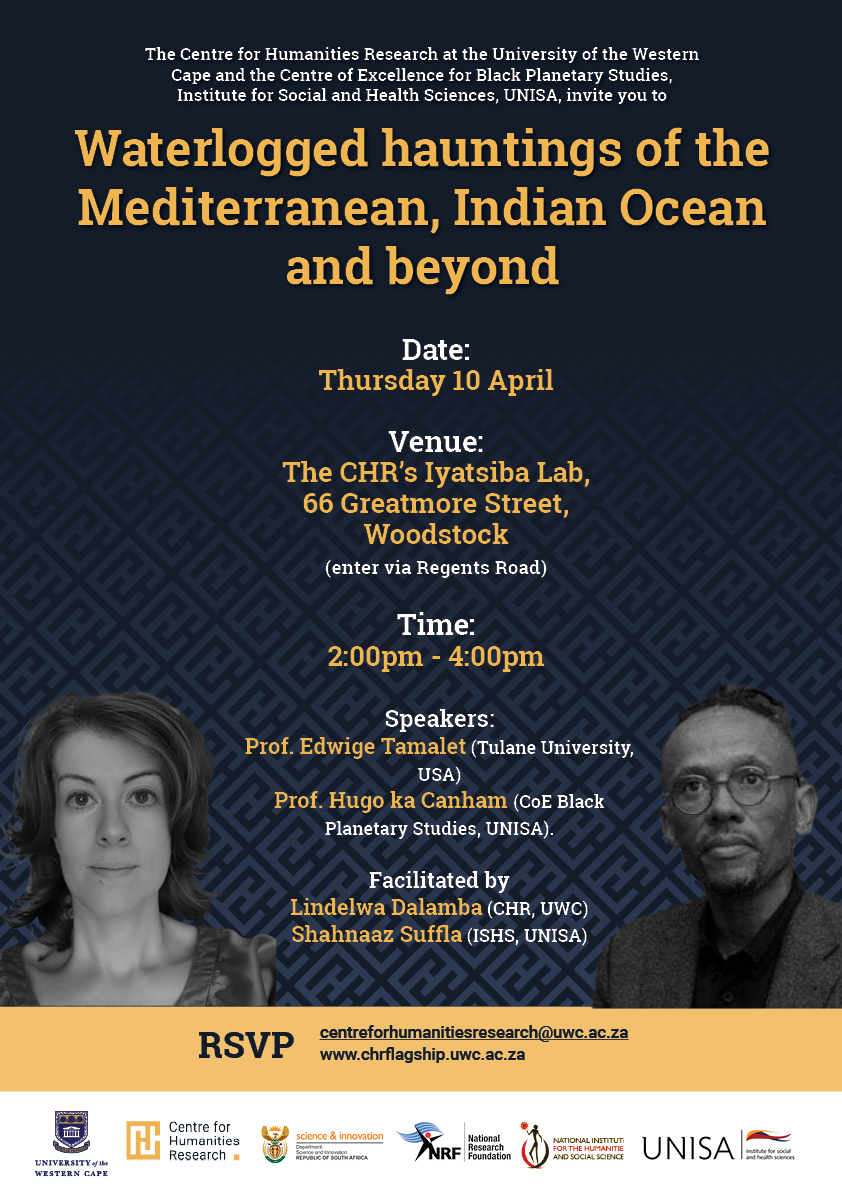Date:
Thursday 10 April
Time:
2:00pm – 4:00pm
Venue:
The CHR’s Iyatsiba Lab,
66 Greatmore Street, Woodstock
(enter via Regents Road)
Speakers:
Prof. Edwige Tamalet (Tulane University, USA)
Prof. Hugo ka Canham (CoE Black Planetary Studies, UNISA).
Facilitated by
Lindelwa Dalamba (CHR, UWC)
Shahnaaz Suffla (ISHS, UNISA)

Edwige Tamalet’s
Edwige Tamalet’s focus on corruptive seawater restores the underwater dimensions of borders– their verticality, reaching into the maritime depths, and their biopolitical devastation of drowned migrant bodies. Her contribution readjustments a focus on water as corrosive agent and imposes on readings of the biopolitical foreclosure of “illegalized” life, and on conceptions of the sea as a necropolitical space. She probes the enmeshment of seawater with the regimes of borderization enacted across the space of the sea. Reading the Mediterranean as an aqueous frontier spotlights the fraught relationship between clandestine migrants and the strictly enforced borders on which Europe’s sovereignty rests. She suggests that water is the very substance through which the deadly logic of borderization is enacted.

Hugo ka Canham
Hugo ka Canham is a writer and professor at the Institute for Social and Health Sciences, University of South Africa where he directs the centre of excellence for Black Planetary Studies. He studies the phenomenology of black life at the margins of human value, suffering and death. His work is invested in dismantling the binaries between the human and the natural, multispecies world. It may be understood within the transdisciplinary framework of Black Planetary Studies. His book, Riotous Deathscapes is published by Duke University Press and copublished by Wits University Press. His next book tarries on the shorelines of East African and Southern African oceans to surface planetary histories of slavery and genocide here.


